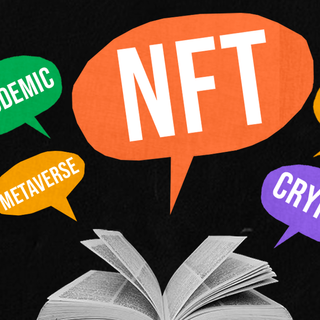
It’s Okay: To Quit Things
Friends, relationships, work — not everything is meant to last.

In It’s Okay, we defend our most embarrassing, unpopular opinions.
Stick it out. Never give up. Never settle.
These seem like trite bites of inspiration for any scenario. Want to quit your job? “But there’s no pain without gain.“ Want to take a break from marriage or a relationship that brings you more pain than happiness? “It’s all worth the effort in the end, no relationship is easy.“ Want to discontinue a hobby that’s not offering respite? “Wait till you master it, that’s where the joy lies, comes the tired wisdom.“
As I see it, everyone is supposed to just make it from Point A to Point B. It unravels like a map already charted; pit stops, toilet breaks, and rest points marked — all in service of achieving a goal.
But goals aren’t set in stone — just like people aren’t meant to lead a static life. Quitting, the notorious word mired in a misplaced idea of “cowardice” and “disappointment,” then must assume a different meaning.
See, it all starts with one shared understanding: people change. We spend so much of our lives trying to commit to things, that it may feel unnatural to actually not take the plunge. “On a very basic level, we are taught that persistence means success and quitting means failure. We are taught that moving forward is progress and stopping is defeat,” a blog noted. “The truth, however, is a bit more nuanced.”
At the risk of oversimplifying it, the truth is like an ever-changing Rubik’s cube. Take the pandemic, when a life indoors and online changed people and their realities, it felt harder to keep a friendship alive, to “make the effort.“
When it comes to friendships or any relationship, people tend to hold on for too long. “It’s only natural for acquaintances and even friends to fall by the wayside as time goes on – and it’s nothing to feel guilty about. If you really do miss someone, you can always reach back out. But if you feel obliged, or like doing so is emotional labor, take that as a sign you can cut that person loose,” Suzanne Degges-White, a counseling professor at Northern Carolina University, U.S., told BBC.
Holding on to things may sometimes feel like being trapped. It is hard to understandwhen the trap starts erecting its walls, but what we do know is the process can feelquite abrupt. And often,people focus only on not quitting as opposed to actually making something out of their experience. “I didn’t want to fail. If I had a toxic friendship, I didn’t want to cut it off, I wanted to figure it out, work it out, and make it work. No matter the stress, the pain, or the tears that I had to go through, I would put myself through it, if it meant I wouldn’t fail,” Kristian. H., Ph.D., wrote in Huffpost.
Related on The Swaddle:
Naomi Osaka Quitting French Open Sets an Example to Prioritize Mental Health at Work
Quitting, in a way, feeds the elusive fear of failure. If the point of every experience is to learn something, “keeping at it” becomes a sadist exploration.
Plus, quitting things is an ode to acknowledging one’s boundaries. Of course, people quit out of fear too — of not being good enough, ofdisappointing others.
Of course, sometimes we need to persevere, but sometimes we also need to let go. Once the person has put in their maximum effort is made, quitting should then appear as a door people should be able to walk through. Resilience and persistence are thought to be markers of greatness, but realizing one’sboundaries and knowing what doesn’t work for themis even better.
Acknowledging your boundaries can bequite liberating really. Self-awareness is an underrated reservoir of wisdom; one that takes time to cultivate, but is powerful. The honor of finishing things despite how stressful or unfulfilling they are falls short of the honor of respecting yourself. This idea echoes through The Great Resignation the pandemic has triggered; people are leaving their jobs under the shadow of being overworked, exhausted, underpaid.
I see the pitfall, though. Of course, like every choice, quitting comes from a place of privilege too. Not everyone can quit work, a marriage, even a relationship if that’s their only emotional support system. But the idea is to strip the cultural narrative around quitting as a sacrilegious act. It is one you can look at in times of necessity, when the instinct is to withdraw.
How does one even go about knowing what to leave, and where to stay? Degges-White suggested making a “friendscape” — a model that can be modified to any situation really. The question she asked in terms of choosing your friends is: “who’s close by, who do we want to be around, and who do we want to surround us?” Take it and apply it to everything else — work, relationships, hobbies. What kind of work do we want to do, who do we want to surround us? There are people and situations who may no longer fit in this version of life, and, perhaps, that’s okay.
If anything, there’s nothing more human than quitting; it speaks to the limits of ambition, mortality, desire. Not everything is meant to last forever. Circumstances change. You change. Quitting is perhaps the biggest acknowledgment of that.
This is Validation Central, here’s your ticket: hop on to any train and get off anytime. It’s okay to pull the chain.
Saumya Kalia is an Associate Editor at The Swaddle. Her journalism and writing explore issues of social justice, digital sub-cultures, media ecosystem, literature, and memory as they cut across socio-cultural periods. You can reach her at @Saumya_Kalia.
Related


The Buzz Cut: Successful Actor With Nothing to Lose Defends Male Co‑star’s Higher Salary
